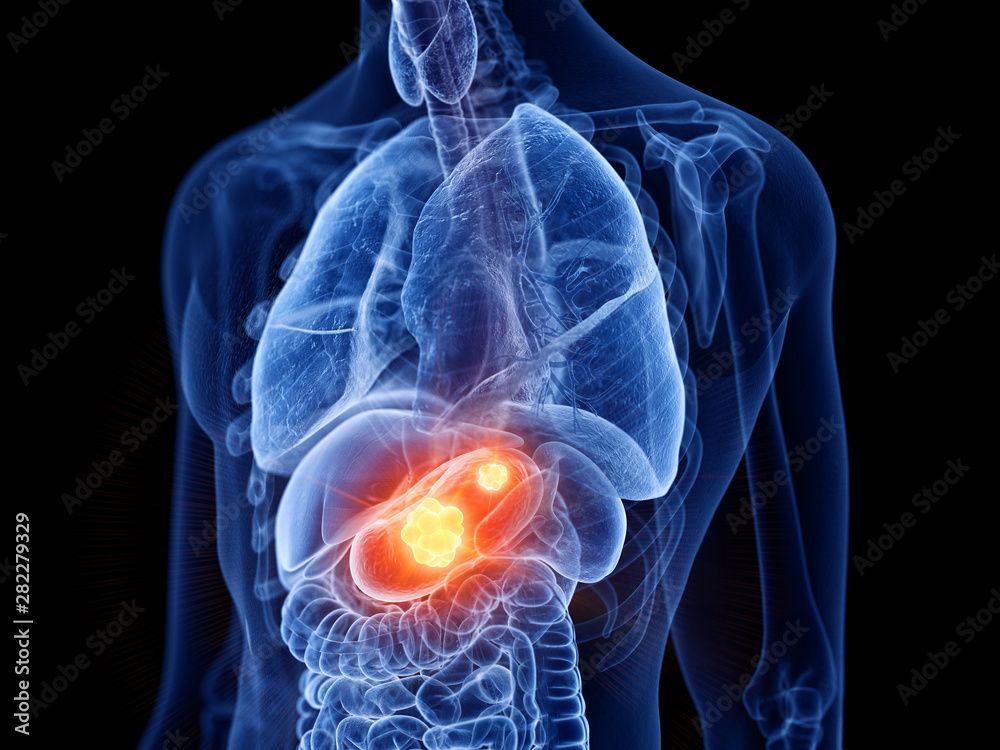Keytruda Combo Boosts Survival in Gastric Cancer Subtype
For certain patients with HER2-positive gastric cancers, a Keytruda treatment combination has shown promising survival outcomes.
An FDA-approved regimen has shown improved survival in certain patients with gastric and gastroesophageal junction cancers.

A Keytruda-based regimen improved survival outcomes in patients with HER2-positive advanced gastric or gastroesophageal junction (GEJ) adenocarcinoma, a news release noted.
Specifically, a news release from Merck, the manufacturer of Keytruda, announced that the phase 3 KEYNOTE-881 trial demonstrated positive data. Patients from the trial received a treatment combination of Keytruda (pembrolizumab) plus Herceptin (trastuzumab) with fluoropyrimidine- and platinum-based chemotherapy.
Keytruda is an immune checkpoint inhibitor and monoclonal antibody that helps the immune system destroy cancer cells, according to Merck.
The Keytruda regimen was approved in May 2021 for this patient population.
Improved Survival Outcomes in Gastric and Gastroesophageal Junction Cancers
KEYNOTE-811 recently met its main goals of overall survival (OS), the news release stated. OS is the amount of time patients with cancer live, regardless of cancer status, the National Cancer Institute defines.
Researchers from the study found that patients tended to have better OS when receiving the Keytruda regimen as first-line treatment, the release reported. These patients had locally advanced unresectable or metastatic HER2-positive gastric or GEJ cancers, whose tumors expressed PD-L1.
Patients from the trial were either given the Keytruda combination or a placebo with Herceptin and chemotherapy, the release said. Researchers established that the Keytruda regimen showed statistically significant and clinically meaningful benefits for OS. Of note, patients with PD-L1—expressing tumors had the greatest benefit.
“Patients diagnosed with advanced gastric cancer often face a poor prognosis, underscoring the need for treatment options that have the potential to extend patients’ lives,” Dr. Marjorie Green said in the release.
Green is senior vice president and head of oncology, global clinical development, Merck Research Laboratories.
“These overall survival results from KEYNOTE-811 are encouraging and build on the positive progression-free survival, overall response rate (shrinkage or disappearance of tumor) and duration of response (time tumors respond to treatment without growing) data from this study,” said Green.
In June 2023, the dual endpoint of progression-free survival (PFS) was met, according to Merk. PFS is how long patients survive without their cancer spreading or worsening, the National Cancer Institute explains.
About the KEYNOTE-811 Trial
The phase 3 trial included 738 patients who had gastric or gastroesophageal junction cancers, according to the listing on ClinicalTrials.gov.
Patients in the Keytruda group received Keytruda intravenously every three weeks. After, they received Herceptin plus chemotherapy on day 1 of every three-week cycle, the listing said. In the placebo group, patients received a placebo intravenously every three weeks, the listing stated.
Secondary endpoints in the trial include objective response rate, duration of response and side effects, the ClinicalTrials.gov listing added.
The researchers are reported to evaluate both objective response rate and duration of response up to approximately five years. Regarding side effects, the researchers are expected to analyze side effects and treatment discontinuation from side effects.
For more news on cancer updates, research and education, don’t forget to subscribe to CURE®’s newsletters here.
FDA, Cancer Vaccine Updates and a Misguiding of Breast Cancer Treatment
February 5th 2024One cancer vaccine may still be years away from being available, a breast cancer test may be misguiding treatments for Black women and the review of two oncology regimens are being expedited by the FDA.
Listen